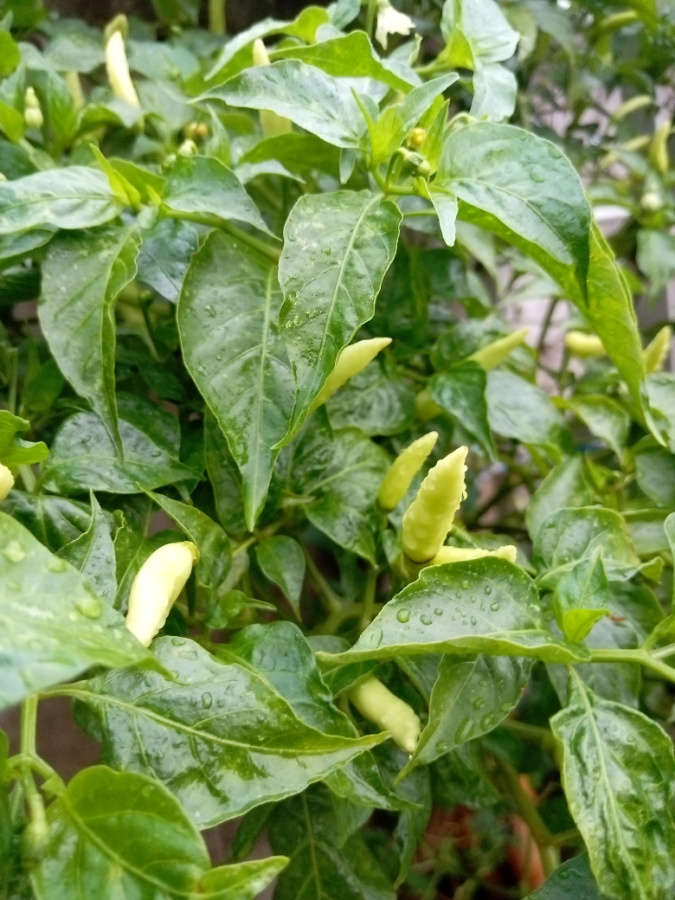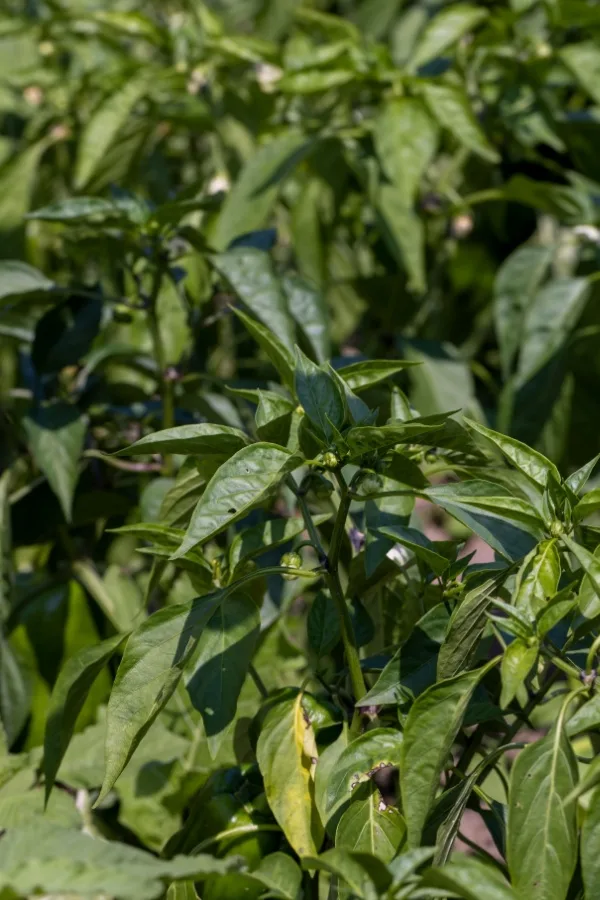Best Fertilizers for Peppers: Make Best Use Of Plant Health and Return
Best Fertilizers for Peppers: Make Best Use Of Plant Health and Return
Blog Article
How Fertilizers Play an Essential Function in Cultivating Abundant and healthy Pepper Crops
Plant foods offer as the foundation of effective pepper growing, providing a tactical technique to nourishing the dirt and cultivating ideal plant growth. The intricate dancing between important nutrients and the pepper plants' physiological procedures highlights the pivotal duty that plant foods play in making sure an abundant harvest.
Importance of Nutrient-Rich Plant Foods
The usage of nutrient-rich fertilizers plays a crucial function in enhancing the performance and high quality of pepper plants in modern farming methods. Pepper plants call for a balanced mix of necessary nutrients to flourish and produce high returns of quality fruits. Nitrogen, phosphorus, and potassium are key nutrients that are important for the growth and advancement of pepper plants. Nitrogen aids in leafed eco-friendly growth and total plant vitality, phosphorus sustains root advancement and blossom production, while potassium adds to condition resistance and fruit quality.
Inadequate degrees of these nutrients can lead to stunted growth, lowered yields, and sensitivity to diseases (best fertilizers for peppers). Nutrient-rich fertilizers provide a targeted remedy to make sure that pepper plants receive the needed components for ideal development and productivity. Additionally, these fertilizers help improve dirt fertility over time, producing a sustainable environment for lasting pepper farming
Enhancing Plant Development and Advancement
To enhance plant growth and development in pepper crops, strategic application of nutrient-rich fertilizers is crucial. Plant foods play a vital function in enhancing the overall wellness and efficiency of pepper plants by offering them with important nutrients that might be doing not have in the soil. Phosphorus, potassium, and nitrogen are main macronutrients required in huge amounts by peppers for robust development. Nitrogen help in leafed environment-friendly development and general plant vitality, phosphorus sustains root advancement and flower development, while potassium contributes to illness resistance and fruit high quality.
In addition to these macronutrients, micronutrients such as magnesium, iron, and zinc are likewise essential for the proper functioning of numerous plant processes. Iron, for instance, is essential for chlorophyll manufacturing, which is vital for photosynthesis and overall plant development. Zinc plays an important function in enzyme activity and hormone synthesis, affecting plant development and growth at a cellular level. Magnesium is vital for the development of chlorophyll and general power transfer within the plant.

Boosting Illness Resistance With Fertilizers
By tactically including targeted plant foods, farmers can boost the disease resistance of pepper plants, making sure optimal plant health and productivity. Plant foods having vital nutrients like phosphorus, potassium, and nitrogen play a critical duty in enhancing pepper plants' immune systems, making them extra resilient to numerous diseases.

Taking Full Advantage Of Pepper Return With Fertilization
Utilizing a balanced fertilization approach is essential to achieving maximum pepper yield and ensuring optimal crop productivity. By providing peppers with the right nutrients at the right time, farmers can considerably enhance their yield capacity. Nitrogen, phosphorus, and potassium are crucial components for pepper growth, with nitrogen helping in fallen leave and stem advancement, phosphorus sustaining root development and blossom formation, and potassium promoting total plant wellness.
To maximize pepper return, it is essential to conduct dirt tests to determine existing vitamins and mineral levels and determine any shortages that need to be attended to. Based upon these results, farmers can develop a customized fertilizing plan that satisfies the particular requirements of their pepper crops. Additionally, correct fertilization strategies such as split applications throughout the expanding season can ensure continual nutrition schedule for the plants.

Lasting Plant Food Practices for Peppers
In considering sustainable plant food methods for peppers, it is vital to concentrate on lasting dirt health and environmental stewardship along with maximizing crop productivity. Sustainable fertilizer methods aim to boost or keep dirt fertility while minimizing adverse environmental impacts. One key method is using natural plant foods such as garden compost, manure, or cover plants, which not only provide vital nutrients to the peppers however likewise add to soil framework and microbial task. These organic choices assist develop raw material in the soil, improving its capability to keep water and nutrients, consequently supporting long-lasting plant health and wellness and strength.
Additionally, precision agriculture methods, such as dirt screening and targeted nutrient applications, can help enhance plant food usage, ensuring that peppers get the nutrients they require without excess Read Full Report overflow into rivers. This not only benefits the atmosphere by decreasing air pollution however also conserves expenses for farmers by minimizing waste. By taking on sustainable plant food practices, pepper farmers can secure the health and wellness of their plants, dirt, and surrounding communities for future generations.
Verdict
In final thought, fertilizers are necessary for cultivating abundant and healthy and balanced pepper plants. best fertilizers for peppers. They supply necessary nutrients for plant growth and growth, increase disease resistance, and maximize return. By executing lasting fertilizer methods, farmers can ensure the long-lasting health of their pepper crops and add to a much more environmentally-friendly and effective agricultural system
The detailed dancing in between essential nutrients and the pepper plants' physiological processes emphasizes the pivotal function that plant foods play in ensuring a bountiful harvest.To enhance plant development and growth in pepper plants, tactical application of nutrient-rich fertilizers is crucial. Plant foods play a vital duty in enhancing the general health and wellness and performance of pepper plants by providing them with vital nutrients that might be lacking in the soil.By strategically integrating targeted plant foods, farmers can strengthen the disease resistance of pepper crops, ensuring optimal plant health and wellness and performance. Fertilizers consisting of essential nutrients like phosphorus, nitrogen, and potassium play a critical role in enhancing pepper plants' immune systems, making them more durable to different conditions.
Report this page